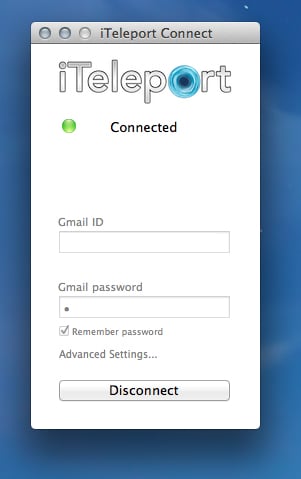
Before it launched, there was a lot of discussion about all the apps, especially on the publishing side and the display side, and developers were excited about what they could monetize because they expected a different demographic to buy the programs.

As a developer you don’t want to have that happen to your user base because then the business model just dies. The other danger there is that people are getting used to the fact that apps should be free. If Android’s strategy is that they need to be filling in these holes, they need to let people buy apps. You can actually buy iPhone and iPad apps in Pakistan even though the iPhone isn’t officially supported there. I come from Pakistan and a thriving iPhone user base there even though the iPhone was never officially launched there. Sherwani: The question of reach is a difficult one.
Iteleport for mac download android#
Is Android playing catch up in those markets? What about the developing markets? India What about the global reach? The iPhone is certainly pushed aggressively in the U.S. There is another technical problem, which is that I think the Android store only lets you buy apps in 13 countries, whereas the iPhone ecosystem lets you buy apps in 90 countries.
Iteleport for mac download free#
I’ve also heard that the user experience on the Android makes it feel more like a device that things should be free on, whereas on the iPhone it’s more like a premium product that looks shiny and you are happy to spend money on. For instance, the other metric that I have thought a lot about is that the average app spend on an Android is far less than that on an iPhone. There are a whole bunch of other aspects you need to think about in this context. Then the iPhone 4 launched, and I think the numbers changed. At one point, Android activations per day were more than iPhone activations. Sherwani: There are all sorts of numbers being thrown around. India What type of growth potential do you see in the different platforms? But the world where I come from, and the people that I know, it’s all about which device you use. If you’re going to a business that’s Android-focused, or iPhone-focused or both, you have a whole different set of constraints.

But a lot of times, you find independent developers doing exactly this because it’s a very personal thing. That’s a very developer-centric way of thinking. The one that I am most interested in is as a developer and as a user, what do you like to use? If you are an iPhone user, and you love the iPhone, you are likely to just develop on it because that’s your life. Jahanzeb Sherwani: There are many sides to that question. Do you think of those as two separate markets, or do you think one will win out over the other? India What trends do you see in the environment today for mobile applications development? There is a growing chorus of people who are iPhone and iPad fans, and those who are bucking that trend and going to Android.


 0 kommentar(er)
0 kommentar(er)
